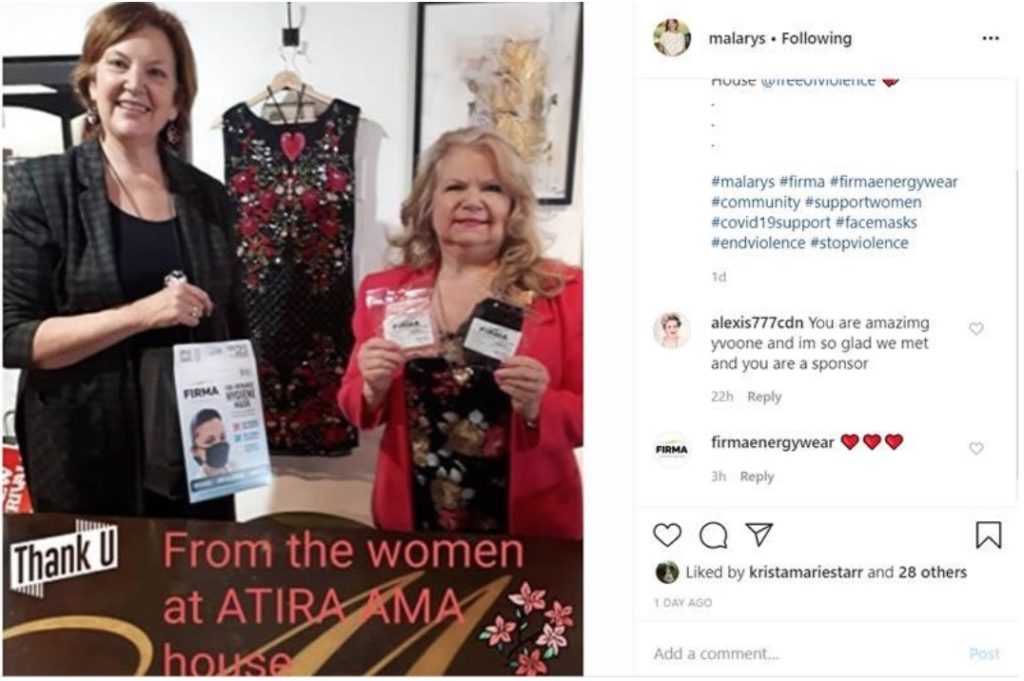Business
The importance of empathy-based marketing
As a business owner, you may have had to pivot your marketing strategy during the pandemic by putting yourself in your customers’ shoes to better serve them. People want brands to be more empathetic and aware of the long-term impact it will have on their lives. Here are some ways to use empathy to enhance your marketing strategy.

3 Ways to Use Empathetic Content Marketing
When I say the word “empathy,” what do you associate it with?
Kindness to a family member going through a hard time? Supporting your partner when they’ve had a bad day? Or, does a business-related example come to mind?
I’m going to guess that many people don’t associate “empathy” with buying or selling.
Unfortunately, many brands don’t either!
But as we move forward from COVID-19, empathy-based marketing isn’t just the right thing to do, your customers now expect it.
Many studies done during the pandemic are showing that people want brands to be more empathetic and aware of the long-term impact it will have on their lives.
Hopefully, you communicated authentically and empathetically with your customers during this time, and you’re going to have to continue to do so!
So now that we’ve established that being empathetic is important, let’s define exactly what it is.
Basically, it’s putting yourself in your customers’ shoes to better serve them. And unlike sympathy, which is feeling compassion, empathy means imagining yourself in another person’s situation.
Examples of Brand Empathy
Let’s look at a real-world example: IKEA recently created a video using footage shot by employees, capturing moments at home.
By thinking like their customers, the company showed solidarity and connection during the COVID-19 crisis—and reminded people that maybe they should spruce up their space!

Here are a couple of ways a small business owner could use empathetic content marketing:
- Make a DIY blog or video to show people how to create something using your product.
Whether it’s growing herbs, updating their wardrobe with a few key pieces, doing crafts, or tracking their finances, this could be a good way to provide something useful to customers or social media followers who are spending more time at home.
Give a portion of your proceeds or donate products to a charitable cause. During the pandemic, one of our clients was very active in the community, donating a number of face masks to health workers.
People are going to be looking to brands to continue these charitable efforts post-pandemic.

No matter how you approach empathy-based marketing, make sure you’re offering something of value to your audience.
According to Forrester’s 2019 research, 65% of consumers say they already get too much material from marketers, and nearly that many think they’re getting useless content.
Being empathetic isn’t your excuse to peddle fluff or lose sight of providing people with an actual solution.
How to Use Empathy to Enhance Marketing
- Tap into emotional triggers
Yes, your product or service offers buyers a solution, but that’s the logical side of the equation. What emotions drive your customers’ behaviour?
For example, one of our clients offers financial therapy services. Rather than focusing only on the numbers and figures, Wendy Wright dives deeper into the why of financial decision-making.
She talks about her previous struggles with money and the importance of looking at finances with “compassionate curiosity” to empathize with her clients, who often feel shame or anxiety around debt or savings.
- Listen to your customers
A 2018 study by M&C Saatchi looked at how well 34,000 customers’ actual experiences with brands lined up with their promises. They discovered that 18% of consumers had stopped using a brand in the last 12 months because of a broken promise.
Twenty-seven percent believe that experiences are getting worse with brands, not better.
Are you following through with the quality and service that your customers deserve?
I’ve talked about this many times before, including the importance of dealing with negative customer reviews. At the core of brand empathy is how you treat your customers when they provide negative feedback.
For example, when a customer accused Airbnb and a host of racial discrimination after being refused a booking, then accepted after using a fake profile of a white man, Airbnb responded swiftly.
They launched their ‘Open Doors’ policy, which places any guest who feels like they are being discriminated against somewhere else, whether that’s in another Airbnb property or in a hotel.
READ: “How to Evolve Your Business Model as Times Change” on our website.

It’s time to look at your marketing and evaluate if it still makes sense to your target audience. I share some great tips on defining and meeting customer needs for your future success!
- Remember and respect differences.
No two customers are alike, even if they both fall into your target audience. People from different geographic locations, generations and genders aren’t all going to necessarily want the same thing from you.
When you’re creating your empathetic content marketing strategy, start with in-depth customer persona research. A marketing persona defines a segment of your audience, for example “tech-savvy millennial”, or “thrifty young mom.”
To design these useful marketing tools, you can look at your demographic data, survey and/or interview your customers and listen on social media.
By developing these marketing personas, you’ll have a much better idea of how to approach—and appeal to—your audience by offering them relevant content they will appreciate receiving from you.
Chances are you had to pivot your marketing strategy during the pandemic, but that doesn’t mean it’s going to be back to business as usual now.
It’s time to walk a kilometre in your customers’ shoes. So be kind, understand the emotional level your client is at right now, and provide valuable content that is relevant to them as we all do our best to move forward stronger than ever.
—
(Featured image by StartupStockPhotos via Pixabay)
DISCLAIMER: This article was written by a third party contributor and does not reflect the opinion of Born2Invest, its management, staff or its associates. Please review our disclaimer for more information.
This article may include forward-looking statements. These forward-looking statements generally are identified by the words “believe,” “project,” “estimate,” “become,” “plan,” “will,” and similar expressions. These forward-looking statements involve known and unknown risks as well as uncertainties, including those discussed in the following cautionary statements and elsewhere in this article and on this site. Although the Company may believe that its expectations are based on reasonable assumptions, the actual results that the Company may achieve may differ materially from any forward-looking statements, which reflect the opinions of the management of the Company only as of the date hereof. Additionally, please make sure to read these important disclosures.

-

 Fintech4 days ago
Fintech4 days agoRobinhood Expands to Europe with Tokenized Stocks and Perpetual Futures
-

 Business2 weeks ago
Business2 weeks agoAmerica’s Debt Spiral: A $67 Trillion Reckoning Looms by 2035
-

 Crowdfunding1 week ago
Crowdfunding1 week agoTasty Life Raises €700,000 to Expand Pedol Brand and Launch Food-Tech Innovation
-

 Cannabis4 days ago
Cannabis4 days agoCannabis Clubs Approved in Hesse as Youth Interest in Cannabis Declines























